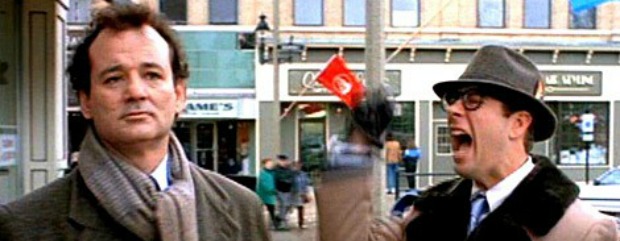
When a screenplay falls in a forest

As part of the application to my screenwriting course at Harvard I ask the students to ask me a question. Most of the questions I’ve received are just fine – good indicators of what the student hopes to learn and sometimes what they misunderstand about what screenwriters do. Yesterday I got this question and it simply blew me away:
“Would you write a feature length screenplay if you knew it would not be produced?”
Oh my. That gets to the heart of so many things.
My immediate response is, without a doubt, no. Of course not. Why would I do that?
And then I hear my impassioned lecturer voice telling the students to pursue screenwriting not because they expect to “win the lottery” – make a million dollar script sale – but because they really love to write screenplays. After all, if you spend most of your time writing screenplays, that is your life. Why would you want your life to consist of something you didn’t want to be doing?
In point of fact, most of the screenplays that screenwriters write are never produced. More than most. So how is knowing that your work is very unlikely to be produced different from knowing that it will never be produced?
Answer number one: Hope. Faith. Belief.
Who knew that screenwriting was such a religious experience?
I write with the underlying assumption that the work I am creating is worthy, and that I am a worthy creator – no matter how much evidence could easily be gathered to argue the contrary. I assume that there is a point to all of the toil and that point includes production.
It takes a certain blind faith and reckless self-confidence to make it through the arduous journey of writing a screenplay. Certainly there is joy, excitement, discovery, learning, and passion along the way, and much of this is why we write. But there are also rough patches, unsolvable puzzles, self-doubt, un-conjurable humor and recalcitrant characters. Without that possibility of production and that confidence of a script’s worthiness of production, I think it would be almost impossible to find a motivation to slog through the muck.
Knowing that a screenplay will NEVER be produced is the same as saying that you have no hope, no faith, no belief. I personally can’t write like that.
Answer number two: Even if the movie is unproduced, as long as there is a belief in the possibility of production you can still get paid.
The movie you wrote may never see the light of day, but lots of screenwriters are paid to write or to have their screenplays “optioned”. That is perhaps the fourth tier of screenwriter satisfaction, with the third tier being production, the second tier being a worthy production and the highest pinnacle uber-tier being a worthy production of your screenplay as written that your mother’s worst enemy loves, critics praise, and audiences flock to see.
Answer number three: a screenplay has a purpose, and that purpose involves an audience.
An unproduced screenplay is an unfinished work, the first leg of a four-way relay race.
When I write it is always to an audience of me, to write a movie that I would want to watch; but a perception of how an audience might receive it is never out of my mind. I am not ignorant of how my story will play (or ought to play). Will the audience be shocked? Will they be anxious? Will they laugh, or cry, or squirm? Will they want to know what happens next? There is no drama in a story that doesn’t know what it’s trying to elicit, and there can be no eliciting without an elicitee.
It is true that with absolutely no chance or hope of production a certain liberation can occur. Whether writing to please an audience or a marketplace, the writer may be limiting himself, avoiding the edges of his creativity or the depths of his true observations lest they be rejected. Without hope of production there is no chance of rejection or judgment, and that can lead to original and honest choices.
Yet the writer who is pleasing only himself with no thought to the audience is showing a certain contempt, and is not joining in a process of give and take that I believe drama requires.
If I have a terrific idea and know in my heart that it will never be produced, I don’t have to write it as a screenplay. I may articulate that idea as a short story, or a song, or a stage play. I may just tell it as a story when people ask what I’m up to. There is no imperative to write an un-producible screenplay if I’ve got other outlets for my creative story ideas.
I do believe that screenwriting is an art, but it’s a commercial art. And movie-making is a collaborative art, the primary collaborateur being the screenwriter. No chance of production? No chance of collaboration? No chance of commerce? No thank you.







COMMENTS